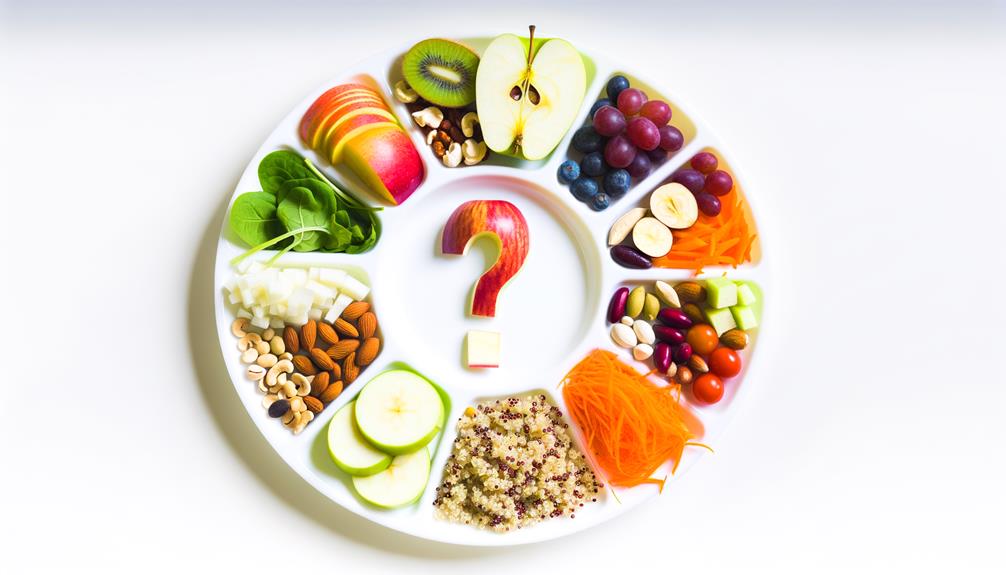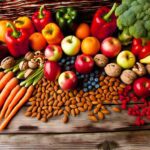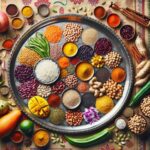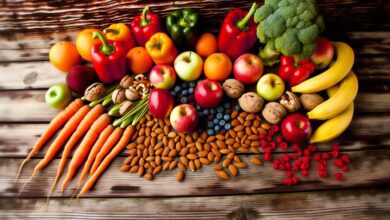You’ve heard the claims, seen the trends, and perhaps even toyed with the idea—the raw food diet, an eating plan rich with unprocessed, unheated, and unaltered plants, promises a return to a more natural state of being, a path to superior health, and a way to eat ethically without harm. But as you ponder the shelves of your local market, bursting with a colorful array of fruits and vegetables, you must consider that not all that glitters is green. While the raw food philosophy is rooted in principles that resonate deeply with cultural ideals of purity and simplicity, the reality is that science does not always concur with the raw doctrine. For instance, certain cooked foods can offer more nutritional benefits than their raw counterparts, and the human body has evolved to digest and utilize a variety of cooked foods effectively. As we peel away the layers of this dietary trend, the question emerges: if we’ve evolved alongside our cooking practices, could it be that the raw food movement isn’t the panacea we’ve been led to believe? Stay with me as we explore the nuances, the contradictions, and the truths that lie beneath the surface of the raw food discourse.
Key Takeaways
- Cooking can release nutrients like lycopene, making them more available to the body.
- Raw food diets can inhibit the absorption of certain nutrients that are neutralized during cooking.
- Packaged raw foods may be deficient in essential nutrients and over-processed.
- A balanced approach of both raw and cooked foods ensures a varied intake of essential nutrients and enzymes.
Nutrient Loss in Cooking
While some nutrients may diminish when foods are cooked, the impact on your overall nutrient intake is minimal, and various cooking methods can preserve, or even enhance, the nutritional value of plant-based ingredients. You’re likely aware that plant enzymes and certain vitamins can be sensitive to heat. It’s true that some vitamins might degrade at high temperatures, typically above 130 degrees Fahrenheit, but cooking food can also release nutrients like the antioxidant lycopene, making them more available to your body.
Steaming and sautéing are kind methods that respect the integrity of your ingredients, allowing you to serve up dishes brimming with nutritional content while maintaining the sanctity of life inherent in plant-based choices. Moreover, these gentle techniques can sometimes aid the absorption of minerals by breaking down plant cell walls, enabling your body to receive the full spectrum of nature’s bounty.
On the other hand, raw food diets, while rich in some nutrients, can inhibit the absorption of others due to natural substances that are neutralized during cooking. It’s a delicate balance, one that you, as someone devoted to nurturing through nutrition, can navigate by celebrating the diversity of both raw and cooked plants in your compassionate culinary practices.
Packaged Raw Food Health
Despite popular belief, not all raw packaged foods guarantee a wholesome diet, as some may be deficient in essential nutrients and over-processed. When you embrace a raw food diet, you might think that eating raw equates to optimal health. However, this isn’t always the case. Packaged foods, even if labeled raw, can be misleading. They often undergo processing that strips away valuable nutrients, including minerals like zinc and B vitamins, crucial for maintaining your health and serving others effectively.
Adopting a mostly raw diet can help reduce certain chemicals introduced through cooking. Yet, you shouldn’t overlook the benefits of cooked foods, which can enhance nutrient availability and improve digestibility. For instance, the myth that cooking destroys all beneficial enzymes and nutrients doesn’t hold up; your body’s own enzymes are quite adept at digestion.
You see, a balanced approach, combining both raw and cooked foods, is key. This way, you ensure a varied intake of essential nutrients and enzymes. Remember, your goal isn’t just to eat, but to nourish and uplift, aligning with an ethical, plant-based lifestyle that respects the natural world and supports the well-being of everyone.
Raw Desserts Consumption
You might find raw desserts tempting as a guilt-free indulgence, but it’s crucial to enjoy these sweet treats in moderation to maintain a balanced, plant-forward diet. While raw foods, especially on a raw vegan diet, often emphasize natural, unprocessed ingredients, this doesn’t mean all offerings are equally beneficial. As someone who values serving others, you understand the importance of nurturing the body with foods that contribute to overall well-being.
Consider these points when indulging in raw desserts:
- Nutrient Density: Raw desserts can be rich in vitamins and minerals, but they should complement a diet filled with a variety of whole foods.
- Macronutrient Balance: A strict raw food diet may lean heavily on high-fat nuts and sweet fruits, so balance these with other plant-based dishes.
- Caloric Intake: Raw desserts often contain natural sugars and fats, which are energy-dense, making portion control essential.
Raw Diet Naturalness
Acknowledging the appeal of raw desserts, it’s also important to examine the broader implications of a raw food diet and its perceived naturalness within a health-conscious lifestyle. The concept of raw diets hinges on the notion that eating foods in their uncooked state preserves the “life force” and enzymes thought to be beneficial for health. However, you must consider that the enzymes in raw foods are, for the most part, destroyed by our digestive systems, and the body is well-equipped to produce its own enzymes for nutrient breakdown.
You may have heard that cooking food above 48 degrees Celsius (118 degrees Fahrenheit) depletes its nutritional value, yet this perspective overlooks how cooking can actually make certain nutrients more available for the body. The process of cooking food has been pivotal in the evolutionary theory ‘Cooking Made Us Human,’ suggesting that our ancestors’ ability to cook increased the energy obtained from food, contributing to brain growth and development.
Adhering strictly to a raw food diet may put you at risk of eating an imbalanced diet that lacks essential nutrients, potentially requiring supplementation. It’s not just about eating raw; it’s about nurturing your body with a varied and ample spectrum of foods. An approach that combines both raw and cooked foods can be more conducive to a wholesome, ethical diet that serves both you and the planet.
Flavor Diversity in Raw Diets
Many raw food enthusiasts overlook the limited flavor profile that often accompanies such diets, potentially leading to a less culturally enriching and palatable experience. While you may embrace a raw food diet for weight loss or to meet specific dietary needs, consider the richness of flavors that cooked cuisines offer. Cooking at temperatures above 48 degrees Celsius often enhances the taste and aroma, something not typically experienced in foods eaten raw.
However, it’s crucial to recognize that:
- A raw food diet isn’t devoid of flavor; it’s about discovering the natural taste of each ingredient.
- Diets around the world incorporate raw elements that contribute to a diverse eating experience.
- With creativity, raw diets can be culturally inclusive and satisfy your desire to serve others with nutritious and ethically sourced meals.
You don’t have to sacrifice flavor to lose weight or address health concerns. Food requires an understanding of how to blend spices, textures, and fresh produce to achieve a satisfying meal. By exploring the culinary traditions of various cultures that value raw ingredients, you can expand your palate and appreciate the global tapestry of tastes—all while adhering to a plant-based, ethical lifestyle that prioritizes raw consumption.
Frequently Asked Questions
Is the Raw Food Diet Scientifically Accurate?
The raw food diet isn’t a one-size-fits-all truth; it overlooks cooking benefits like increased nutrient bioavailability and dismisses potential nutritional deficiencies. It’s more about dietary balance than clinging to enzyme theories or evolutionary diets.
What Is the Truth About the Raw Food Diet?
You’ll find raw benefits and nutrient preservation in a raw food diet, but also consider potential risks like plant toxins and food safety. It’s not nutritionally complete; listen to personal testimonies but research enzyme myths.
Why Raw Food Is Not Healthy?
You’re risking nutrient deficiencies, digestion issues, and bacterial risks with an all-raw food diet. It lacks food variety, can disrupt thyroid function, and ignores cooking benefits. Such extreme restrictions pose social challenges.







